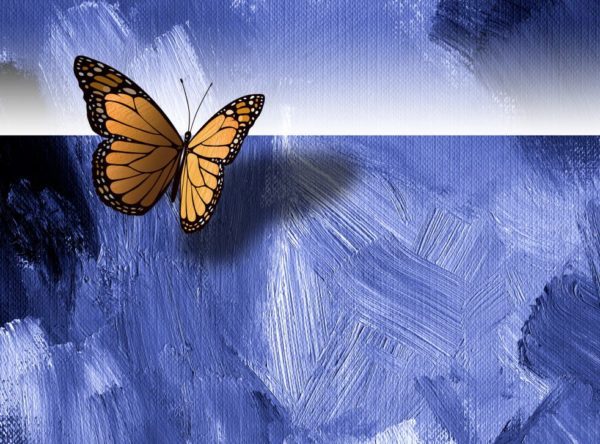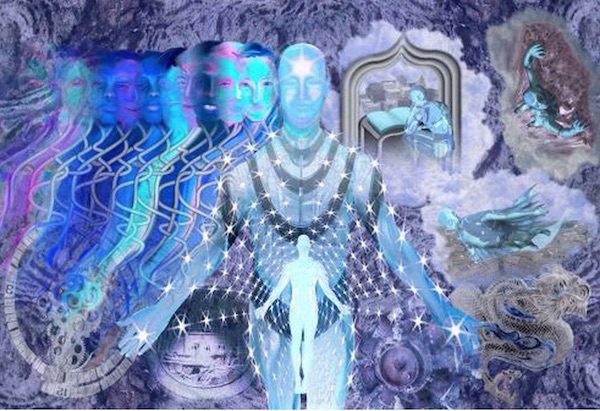 by Dr Renata Bartoli
by Dr Renata Bartoli
It’s not possible to give a date when the concept of reincarnation first appeared among human beliefs because it seems to be as old as humankind itself and it is present in cultures all over the world.
Its first manifestation seems to be in Shamanism. From it the belief in rebirth has passed into all major religions that have developed on earth, accompanying and influencing them throughout their evolution.
Reincarnation though transcends the limits of specific, codified religious systems. Nowadays, in a more and more secularised Western society, it is science that enjoys respect and credibility, while traditional religions are constantly losing public interest: in fact, people are in search of a more direct and less structured spirituality. In this climate, interest in reincarnation is not fading but growing and this ancient, primordial belief is now receiving validation and support by just those very scientific milieux that – traditionally – have always been the antagonists of religions. I say ‘primordial belief’ because looking back to the entire history of human thought, reincarnation is actually the only worldwide concept that has shown continuity and permanence from our origins to the present day.
Eastern religions are well known to hold the concept of rebirth at the very core of their teachings. What is less known is that reincarnation has also always been present in monotheistic faiths and philosophical systems of Western and Middle Eastern societies.
In classical Greece Plato, Diogenes and Pythagoras spoke of reincarnation and past life regressions.
The Ancient Jews believed that Abel had reincarnated into Moses, and in the Middle Ages reincarnation appears in the esoteric teaching of Kabbalah, developed further in later times by the Hassidic movement.
The concept of Karma was introduced to Latin Rome by Ennius, after being imported from the newly conquered Eastern territories, and Virgil describes reincarnation in his poems.Medieval Islam was also familiar with the concept of rebirth, and the Persian Sufis have preserved this belief up to the present day. The Quran itself explains the law of Karma.
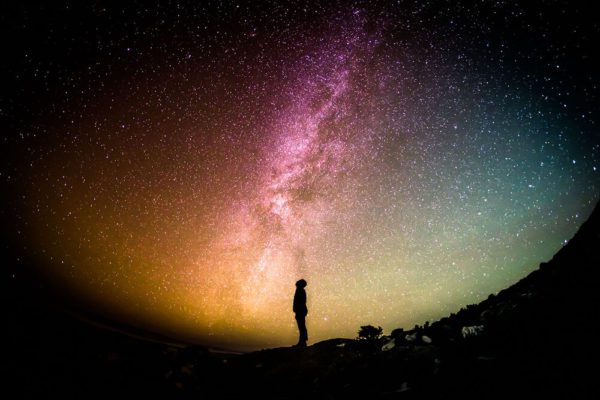 What about Christianity? Reincarnation was an integral part of the beliefs of early Christians and there are references to it even in the teachings of Jesus himself. However everything changed in 325 AD when, at the Council of Nicaea, reincarnation was condemned as heretical. The fact is that this council was called in times of great turmoil and insecurity and its decisions were dictated by political needs and not by spiritual considerations; in fact the Council was requested by Constantine, the emperor of the Eastern Roman Empire, and it marked a crucial political turning point in the fate of what would later become Europe as we know it today.
What about Christianity? Reincarnation was an integral part of the beliefs of early Christians and there are references to it even in the teachings of Jesus himself. However everything changed in 325 AD when, at the Council of Nicaea, reincarnation was condemned as heretical. The fact is that this council was called in times of great turmoil and insecurity and its decisions were dictated by political needs and not by spiritual considerations; in fact the Council was requested by Constantine, the emperor of the Eastern Roman Empire, and it marked a crucial political turning point in the fate of what would later become Europe as we know it today.
At that time the old empire was disintegrating under the pressure of nomadic peoples coming from the East, bringing with them a completely new and unknown civilisation. Constantine was the head of this vanishing empire and he was desperate to maintain an order which was faltering in the face of the advancement of the chaos brought by them. To do so he needed absolute power and absolute obedience and to obtain them both he needed very strict laws, able to keep order within the threatened boundaries. In such a situation people were supposed to obey without question, and no challenge to his authority or the status quo was tolerated.
Reincarnation states that we incarnate over and over again, experiencing all sorts of human conditions, and that someone who had been a king in the past could be reborn as a tramp and vice versa. The precariousness and transitoriness of social status that it taught certainly sounded very subversive to a frightened monarch, and didn’t hold any appeal for him. Constantine used a heavy hand to eradicate it. He banned it as he did all other ideas or beliefs he felt threatened by, and he didn’t hesitate to execute their supporters, mercilessly silencing any opposition.
In spite of all this the idea of rebirth has never been extirpated and today – although the traditional religious systems are in crisis throughout the entire Western civilisation – the belief in reincarnation is growing steadily both in Europe and the USA, as the statistics of the last twenty years show.
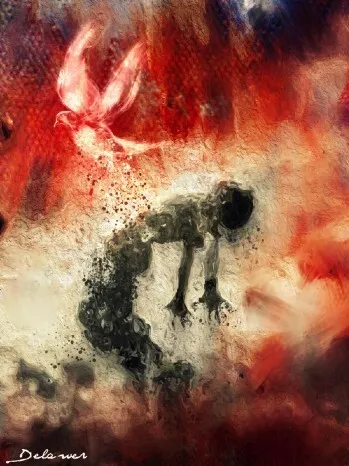
From various polls it appears that 25% of Americans believe in reincarnation, which means that one American in four believes in past lives. The European average is only slightly lower (24%) but it greatly varies from country to country, going from 15% in Norway to 33% in Great Britain. This means that in the UK one person out of three believes they have already lived in another body, in another time and – consequently – will probably come back again in the future.
Religious beliefs do not seem to interfere with the acceptance of the concept of reincarnation either, since polls have shown that – although Catholicism has been the faith to most strongly oppose reincarnation in modern times – countries where Catholicism traditionally predominates also show high percentages of belief in rebirth, even among regular mass-goers: Portugal 32%; France 28%; Italy 27%; Spain 25% (For more details see here).
These data are highly encouraging in our present climate of gloom and insecurity (similar to Constantine’s time) where we are all called to revise deep-seated behaviours and re-examine ways of life we had always considered ethically correct and never thought of putting under scrutiny before. However, this time there is not an empire or the future of a continent at stake but the entire planet and the survival of our species. Fully embracing the concept of reincarnation and living according to it will generate at least two important benefits which we are certainly in great need of: a serious environmental conscience and tolerance.
If we believe that when we die it’s all over or – alternatively – that we fly away to heaven leaving the earth far behind us forever, there is not much incentive to protect the environment for future generations that we shall never meet. The temptation to say: “It will be their problem, who cares?” is strong. However if we believe that we shall come back here and that we shall be part of those future generations, then the problem suddenly becomes ours too and it’s better to look into it sooner rather than later (especially because it is already quite late anyway).
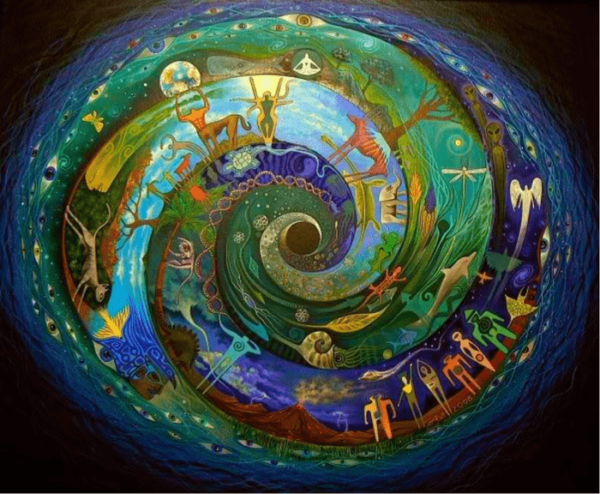 Wars and discrimination are always based on greed and resentment but they are masked, in one way or another, by the justification of diversity. Hate feeds on envy for what others are or have. Reincarnation teaches that we have all lived many, many lives, incarnating in many different conditions: different sex, different colour of skin, different cultures, different religions, different sexual orientation, different locations, different social status … Once we are fully aware of this, it becomes impossible to attack someone else for being ‘different from us’ because we know that we have experienced all the possible permutations ourselves. Reincarnation teaches tolerance, it teaches us to accept and respect what is different from us because we are likely to have already been – or are going to be – in that way too.
Wars and discrimination are always based on greed and resentment but they are masked, in one way or another, by the justification of diversity. Hate feeds on envy for what others are or have. Reincarnation teaches that we have all lived many, many lives, incarnating in many different conditions: different sex, different colour of skin, different cultures, different religions, different sexual orientation, different locations, different social status … Once we are fully aware of this, it becomes impossible to attack someone else for being ‘different from us’ because we know that we have experienced all the possible permutations ourselves. Reincarnation teaches tolerance, it teaches us to accept and respect what is different from us because we are likely to have already been – or are going to be – in that way too.
Regrettably however, the great interest and faith in rebirth revealed by the results of surveys isn’t reflected in the interest and attention demonstrated by official channels and the non-specialised press, with the unfortunate result that too many people still feel intimidated to openly show an interest in this subject and fear to be ridiculed or considered superstitious.
The thought that some sort of political ostracism is at work now as it was in the 4th century is quite tempting. Certainly reincarnation has important philosophical consequences: embracing belief in rebirth and informing their lives on it, people certainly free themselves from many fears, and this process makes them more responsible and more independent, leaving much less possibility for them to be manipulated. Are the political powers and the hierarchised religious systems frightened of losing control as they were nearly 2000 years ago? We are not in the time of Constantine anymore and since then humans have grown up enough to be able to take responsibility for themselves. A quick search on Google gives 5,200,000 hits for ‘Reincarnation’ and 59,100,000 hits for ‘Past Lives’. These data speak for themselves and don’t need any further comment. As Greywind said in his Voice within the Wind: Take courage, make the leap.
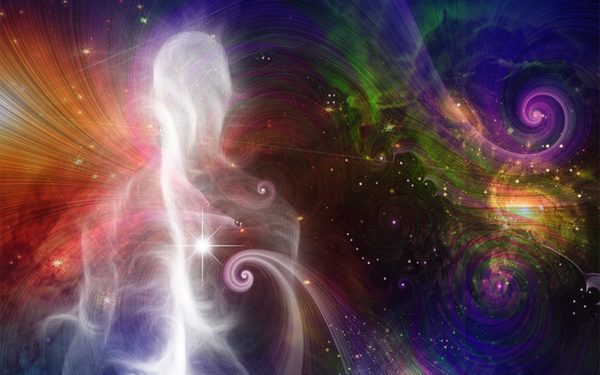 To end this part we need only to add a few words on the concept of Karma, which is the universal law that regulates Reincarnation. Karma means ‘action’, ‘deed’, but it can also mean ‘reaction’. Although its precise interpretation varies from religion to religion, Karma can be broadly defined as the universal law that regulates the cycles of rebirth through actions that will need reactions until the balance goes back to zero.
To end this part we need only to add a few words on the concept of Karma, which is the universal law that regulates Reincarnation. Karma means ‘action’, ‘deed’, but it can also mean ‘reaction’. Although its precise interpretation varies from religion to religion, Karma can be broadly defined as the universal law that regulates the cycles of rebirth through actions that will need reactions until the balance goes back to zero.
These facts are quite well-known and probably do not need to be discussed any further here. However, I would like to briefly look into an interpretation which is unfortunately too commonly heard in modern Western civilisation. According to it the evil that people suffer depends on previous faults of theirs.
This is a very reductive and simplistic way to explain this universal law and it also lacks compassion.
Although Karma is the law of cause and effect, action and reaction, it is not so simple and easy. Before reincarnating, the soul decides a broad script for its new life, setting some goals to achieve through certain types of experiences. We all do this but the choice of whether to have happy or painful experiences is not simply dictated by a sort of spiritual accountant who has to balance the books at the end of the day.
It’s true that a painful experience can be in payment for an old debt, but many other reasons can also explain it: some souls may decide to speed up their evolution by filling a single life with tests that other souls prefer to undergo during many lives. There is always someone who takes a shortcut and in this case we should admire them and not tell them that they deserve their suffering because they are guilty.
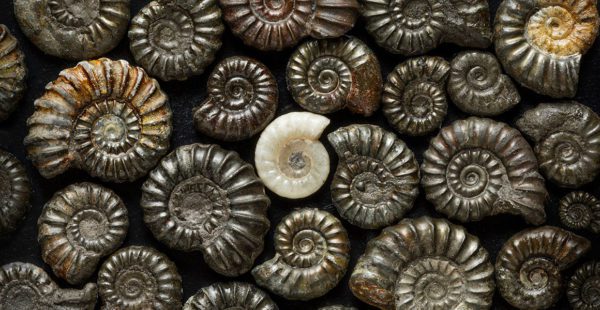 Not only that: learning compassion and expressing it is the best way to progress in the spiritual world and it should therefore always be paramount. Compassion helps the sufferer who receives it, but even more the person who shows it. If you see a blind man walking unknowingly under a train you can think that it’s his karma to die in that way and maybe that a premature death is the fair reward for some bad deed he committed in another life. Or you can go and save him, preventing him from dying, because if you don’t take action you might find yourself, in a future life, paying for your callousness, so that when you will be most in need of help no-one will give it to you. Life plans are always complex things that involve many souls; there are mutual agreements of interactions.
Not only that: learning compassion and expressing it is the best way to progress in the spiritual world and it should therefore always be paramount. Compassion helps the sufferer who receives it, but even more the person who shows it. If you see a blind man walking unknowingly under a train you can think that it’s his karma to die in that way and maybe that a premature death is the fair reward for some bad deed he committed in another life. Or you can go and save him, preventing him from dying, because if you don’t take action you might find yourself, in a future life, paying for your callousness, so that when you will be most in need of help no-one will give it to you. Life plans are always complex things that involve many souls; there are mutual agreements of interactions.
Any hasty and superficial judgement of the painful tests someone else is passing through needs to be carefully avoided. So – if you see someone suffering some terrible ordeal – don’t think that they deserve it, but instead think: “How courageous they must be to have chosen to go through such a terrible experience” and give them all the support you can.
Remember: there is always an alternative in life.
Renata’s website can be found in the link here.
